06/13/18
K-State Current - June 13, 2018
K-State Current is a weekly news update for the Kansas Board of Regents to apprise the Regents on a few of the many successes and achievements made by K-State faculty, staff and students.
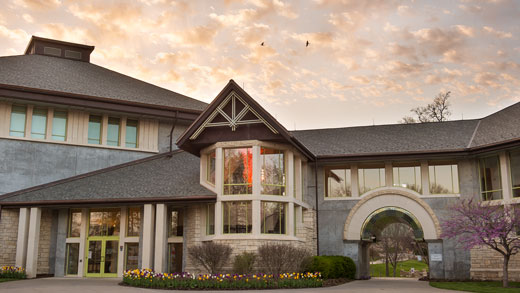
K-State News
Brian Niehoff to serve as acting provost
Brian Niehoff, associate provost, will serve as acting provost between the departure of current Provost April Mason on June 30 and the arrival of the new provost, Charles Taber, in mid-August.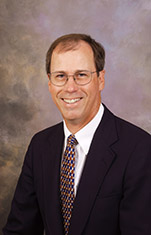
Niehoff's assignment was announced by Richard Myers, university president. Niehoff has been a member of the provost's staff since 2009.
"Brian's deep knowledge of the provost's office and his work with accreditation make him the ideal person to temporarily handle the duties of the provost," Myers said. "We're appreciative of his willingness to serve the university in this position."
As associate provost, Niehoff leads the Office of Institutional Effectiveness. Among his many responsibilities is university accreditation, which he coordinated in 2012 with the Higher Learning Commission. He is in charge of assessment and institutional program review and institutional research and reports, supervising both the Office of Assessment and the Office of Planning and Analysis. Niehoff also supervises the Teaching and Learning Center and oversees programs that help develop and mentor faculty and administrators and that recognize and reward outstanding faculty, including coordinating the selection of university distinguished professors.
Joining the university as an assistant professor of management in 1988 and promoted to full professor in 2002, Niehoff has taught undergraduate and graduate courses in organizational behavior, organizational training and development, entrepreneurship and international management. His research focuses on leadership, workplace justice, organizational citizenship behaviors, mentoring, and the effect of immigration on HR practices, and he has authored dozens of research articles and book chapters.
Niehoff earned his bachelor's degree in mathematics from St. Joseph's College in Indiana and then spent more than six years as a computer programmer for various companies. He then returned to school, earning his MBA and doctorate in organizational behavior from Indiana University.
New $3.7 million NIH grant supports collaborative research against MERS coronavirus
A relatively new virus has commanded the attention of a team of multi-institutional researchers and prompted a $3.7 million five-year research project.
Kansas State University's Kyeong-Ok "KC" Chang, a virologist at the College of Veterinary Medicine, is collaborating with multiple scientists from various disciplines on Middle East Respiratory Syndrome coronavirus, which is known as MERS-CoV.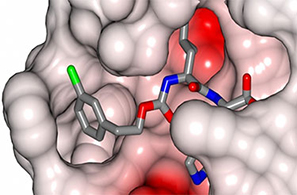
"Since the unexpected emergence of Middle East Respiratory Syndrome coronavirus in 2013, the ongoing outbreaks of MERS in the Middle East and the potential for global transmission of MERS have underscored the urgent need for effective preventive and therapeutic measures against this highly virulent coronavirus," Chang said.
Chang is collaborating with Yunjeong Kim, a virologist from Kansas State University; William C. Groutas, a medicinal chemist at Wichita State University; Stanley Perlman, a virologist at the University of Iowa; and Scott Lovell, a structural biologist at the University of Kansas.
Their grant, "Small Molecule Protease Inhibitors Against Middle East Respiratory Syndrome Coronavirus," is funded by the National Institutes of Health's National Institute of Allergy and Infectious Diseases.
Coronaviruses are part of a group of RNA viruses that look like a corona or halo when viewed under the electron microscope. Directly acting inhibitors such as polymerase inhibitors and protease inhibitors have been successfully developed and available to the public against viral infections like the human immunodeficiency virus and hepatitis C virus. However, no specific antiviral is yet available for MERS-CoV.
Kim, Chang and Groutas have been working on protease inhibitors for a fatal feline coronavirus infection, called feline infectious peritonitis, or FIP, and have recently shown the efficacy of their inhibitor in the treatment of this infection in feline patients. This shows the potential of their approach to the development of an antiviral drug for coronavirus infection.
"MERS-CoV has two viral proteases that are essential for viral replication, making them attractive therapeutic targets," Chang said. "We are working on the development of protease inhibitors against one of MERS-CoV proteases by optimizing current effective compounds toward preclinical drug candidates. This campaign will have a significant impact on MERS-CoV research and public health."
Phoreus Biotechnology licenses Kansas State University bio-delivery technology
Phoreus Biotechnology, an Olathe-based company, has licensed a Kansas State University nanotechnology designed to deliver biomolecules that can improve vaccines and cancer therapies, boost the effectiveness of diagnostic imaging and control of pests, and control diseases and parasites in both animals and plants.
Branched Amphiphilic Peptide Capsules, known as BAPCs, are invisible and nontoxic to cells but can deliver active ingredients in a revolutionary way. John Tomich, professor of biochemistry and molecular biophysics, led an interdisciplinary team that developed BAPCs over the past eight years. The group has published 12 papers, including one in February, and obtained three patents during that time. Tomich said he has been amazed by the potential applications of BAPC. 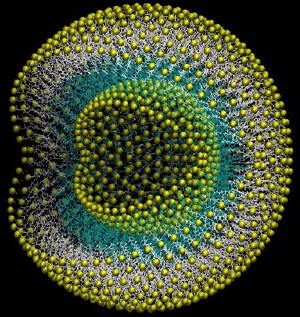
"When we first made BAPC, nothing like it had previously existed; we were at ground zero in terms of understanding how it could be utilized," Tomich said. "We've been trailblazers in this area because it's such a novel material, and we have been able to control its size and decorate it with various things and help with enhancing biological activities."
Randall Tosh, a Kansas State University alumnus and chief executive officer of Phoreus Biotech, said the technology fills a significant need in a range of industries.
"Few discoveries have the capacity to change the global landscape of human, animal, plant and environmental health, but BAPC is one of those discoveries," Tosh said.
"University researchers and companies engaged in animal, plant, and human health care are in need of a quality delivery system for specific chemicals that can be delivered to unique cellular locations for gene therapies and vaccines," he said. "The current state-of-the-art depends on using delivery tools that may be toxic to critical cells. BAPCs are much more robust, versatile, and benign in their various applications."
Kansas State University researchers have already used BAPC to deliver targeted insecticides to tiny pests such as the red flour beetle and the pea aphid. This unique delivery technology accelerates research studies and opens new possibilities.
Because BPACs can be ingested in a powder or liquid form, Tomich said it makes working with insects — even the smallest ones — much easier.
Tosh said Phoreus is developing kits that will allow interested university and corporate researchers to test the capabilities of BAPCs and become acquainted with their versatility.
Tomich wanted to license the material to a Kansas company in an effort to create jobs. Phoreus will pursue research and sublicensing opportunities with other companies while it works to obtain regulatory approvals. The company has its corporate offices on the K-State Olathe campus to better facilitate ongoing research collaborations with the university. Phoreus expects to add three additional staff members in 2018 while also sponsoring a postdoctoral research position in the university's biochemistry and molecular biophysics department.
Peter Dorhout, vice president for research at Kansas State University, said Tomich's invention is an example of how basic research contributes to economic development.
"Innovations from Kansas State University researchers have provided the foundation for economic success in our state and region for more than 150 years, and technologies like BAPCs help us carry that legacy into the future by creating new jobs in emerging industries," Dorhout said.
"Universities work to license faculty and student-created inventions to companies to get the technology into the marketplace," said Chris Brandt, president of the Kansas State University Research Foundation. "Money invested in basic research is converted into product and services for the general public. It's part of K-State's mission to turn basic research into improvements that can drive economic growth."
Tosh said the partnership between Phoreus and Kansas State looks promising.
"We are very pleased to pursue commercialization of this valuable technology through partnership with the Kansas State University Research Foundation," Tosh said. "By 2022, the global market for our potential fields of use will approach $500 billion. Our success will be measured by both our development and market deployment of new products and by the extent to which we can successfully engage with research collaborators at K-State and beyond to generate further laboratory and commercial outcomes with our partners."
K-State Faculty Highlights
Bill Gross, aviation professor and chief flight instructor at the Kansas State University Polytechnic Campus, has spent more than half of a century in the cockpit of an airplane and now his dedication to flying is being recognized by the Federal Aviation Administration.
Gross is the recipient of the Wright Brothers Master Pilot Award, the most prestigious honor issued by the FAA to certified pilots. The award celebrates aviators who have practiced and promoted safe flight operations for 50 or more years through professionalism, service, skill and expertise. Less than one-half of 1 percent of all pilots have earned this recognition.
"I've always been interested in flying, ever since I was a kid and my friend's father took me up for my first ride," Gross said. "When I started learning, I just wanted to get my private pilot certificate; I never dreamed it would be something I would be doing for 50 years. But it's an adventure every day, especially with my students, and I've got the best view out of my office window."
Gross was presented with the award May 4 at an event at Kansas State Polytechnic commemorating his 50 years in the air. His first solo flight was in February 1968. Jerald Eichelberger, manager of the Wichita Flight Standards District Office, and James Lamb, a safety liaison in the FAA Safety Team, were on hand to officially announce Gross' extraordinary achievement.
"It is truly an honor to be able to present the Wright Brothers Master Pilot Award to Bill, who I first met in 1988 when I took my instrument rating practical test from him," said Eichelberger. "Since joining the FAA in 2003, I have learned to know Bill in a much more significant way and have come to appreciate how much he has contributed to the aviation community."
A native of Friend, an unincorporated community in western Kansas, Gross grew up riding a tractor from daylight to dark when he wasn't in school. Although his classmate's father who took him flying planted a seed of curiosity in Gross about aviation, ultimately it was his family's farming roots that influenced his collegiate path.
Gross attended Kansas State University and earned a bachelor's degree in animal sciences and a master's degree in ag education. After graduating and serving in the military, he started teaching high school vocational ag and was a leader for its chapter of the National FFA Organization. He also spent 13 years as an animal feed and health products salesman for the former largest agricultural cooperative in North America, Farmland Industries.
With an eye always on the sky, Gross never abandoned his interest in aviation. One day while at Kansas State University, he took a drive in the country and unintentionally ended up at the local airport. After speaking with some of the employees about how to get started flying, Gross approached his wife, Elaine, about pursuing aviation in his spare time. With her blessing, Gross began flying in the morning and evening and on weekends. Once he received his certified flight instructor certificate in 1970, he began teaching others and has never stopped.
In 1987, Gross finally made flying a full-time career: He was hired by Kansas State Polytechnic — known as the Kansas Technical Institute at the time — to be an instructor in the professional pilot associate degree program. Over the years, Gross helped expand the program to a four-year degree; was the university's chief pilot, transporting the president, coach Bill Snyder and others to their destinations; and created two scholarships in his family's name to assist flight students.
Though it's difficult to estimate how many pilots he has instructed and tested since he began his aviation journey, Gross is adamant about instilling in all of his students a focus on professionalism, dependability, time management, safe operations and taking pride in your work.
"Bill's dedication to aviation and his students is something to be admired," said Monica Riggs, an instructor pilot on the KC-135 at McConnell Air Force Base and a 2005 graduate of the professional pilot program at Kansas State Polytechnic. "His technical knowledge and the professionalism he teaches have led me and numerous others to find success throughout our careers. He expects and demands it in such a way that drives students to expect and demand it of themselves."
"What I love the most about being an aviation professor is watching students progress during their time on campus; they are completely different pilots and people when they graduate from when they entered their freshman year," said Gross. "I enjoy knowing that I've had a small part in their transformation."
Along with the Wright Brothers Master Pilot Award, Gross has earned his eighth master certificated flight instructor accreditation, making him one of only 16 worldwide to hold this designation. He also was selected for Kansas State Polytechnic's distinguished Marchbanks Memorial Award for Teaching Excellence in 2017.
Kaup named Gerontological Society of America fellow
Migette Kaup, professor of interior design and gerontology, was named a Gerontological Society of America fellow. The society is the world's oldest and largest interdisciplinary organization devoted to research, education and practice in the field of aging.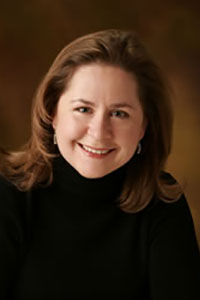
In the organization, a fellowship is the highest class of membership and is an acknowledgement of the outstanding and continuing work done by the person in the field of gerontology.
Kaup was nominated by Gayle Doll, director of K-State's Center on Aging.
"No one is more passionate about improving the quality of life by analyzing and problem-solving the environments in which they live than Migette," Doll said. "Through countless hours of teaching, education and service, she has embodied the spirit of the fellows of the Gerontological Society of America. She will now be an even greater asset to the organization."
Kaup is the interior design program coordinator at K-State. She earned her doctorate from the University of Wisconsin-Milwaukee's School of Architecture and Urban Planning. Her educational background also includes a Bachelor of Science in interior design, and a Master of Architecture in environment and behavior and place studies with an emphasis in gerontology from K-State. She has National Council of Interior Design Qualification and Evidence-Based Design Certification, and her professional design practice includes more than nine years in architectural firms as well as seven years in private consulting to long-term care providers and design professionals.
In addition to teaching in the interior design program, Kaup is a member of the gerontology faculty through the K-State Center on Aging. Her current work at K-State involves research in the areas of environments and aging, specifically skilled care settings. Her scholarship on the role and impact of design in long-term care settings has been published in both books and journals.
K-State Student News
Wind power team breezes into third place of Collegiate Wind Competition

The Wildcat Wind Power team took third place in the U.S. Department of Energy's 2018 Collegiate Wind Competition at the American Wind Energy Association Conference, Windpower 2018, May 7-10 in Chicago. The team competed against 11 university teams in a challenge to offer a unique solution to a complex wind energy project.
The teams took part in wind turbine design and construction, wind farm design and addressed the business aspects of renewable energy. Justice Catron, freshman, and Sam Pint, junior in mechanical and nuclear engineering, were charged with leading the wind farm design, which produced the most efficient design of the teams in the competition and translates into a farm producing power at the lowest rate of dollars per kilowatt-hour.
K-State's turbine design received compliments in regard to its sleekness, simplicity and superior performance in passively tracking the yawing wind while under test. The electrical portion of the design went well, especially during the durability test and received the team's largest portion of points.
"The team's performance pleases me greatly and is a source of pride for the College of Engineering," said Warren White, the team's co-advisor and associate professor of mechanical and nuclear engineering. "The leadership provided by Jake Meyer, president of Wildcat Wind Power and senior in industrial and manufacturing systems engineering, facilitated an organized effort and closely focused the team's attention on the important tasks. Meyer also spearheaded the business portion of the competition."
The wind turbine mechanical design team consisted of Joel Pegg, Jacob McAfee, Jackson Jennings, Giselle Guanes-Melgarejo and Matt Bryan, all seniors in mechanical and nuclear engineering. The electrical design team consisted of Tyler Kodanaz, sophomore in electrical and computer engineering, and Will Brownlee, senior in electrical and computer engineering.
The bulk of the team's funding comes from a $20,000 U.S. Department of Energy grant. Ruth Douglas Miller, the team's co-advisor and professor emeritus of electrical and computer engineering, and White serve as co-principle investigators on the grant.
Supporting funds also were provided by the College of Engineering, the mechanical and nuclear engineering department, and the electrical and computer engineering department. The mechanical design team was advised by David Pacey, professor of mechanical and nuclear engineering.
"The common thought shared by the team members as they returned to Manhattan was a firm resolve to do even better at the next competition," White said.